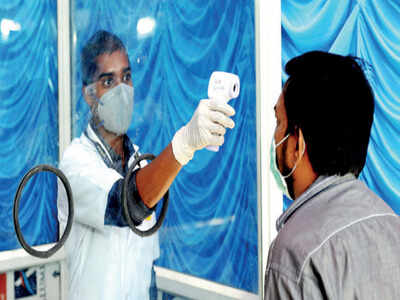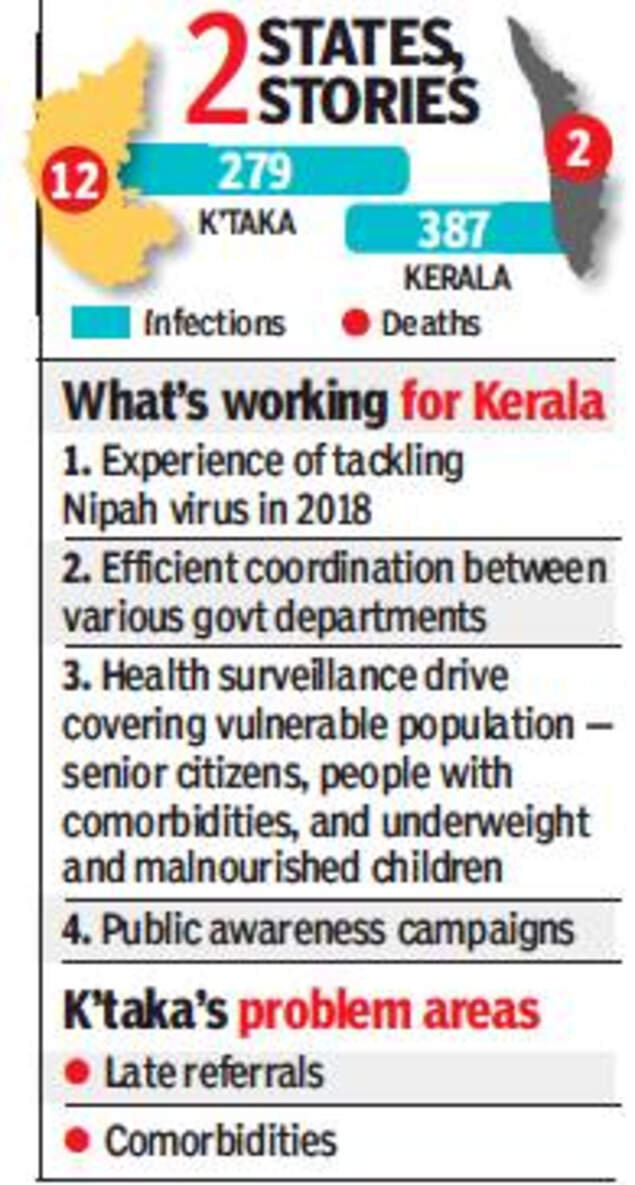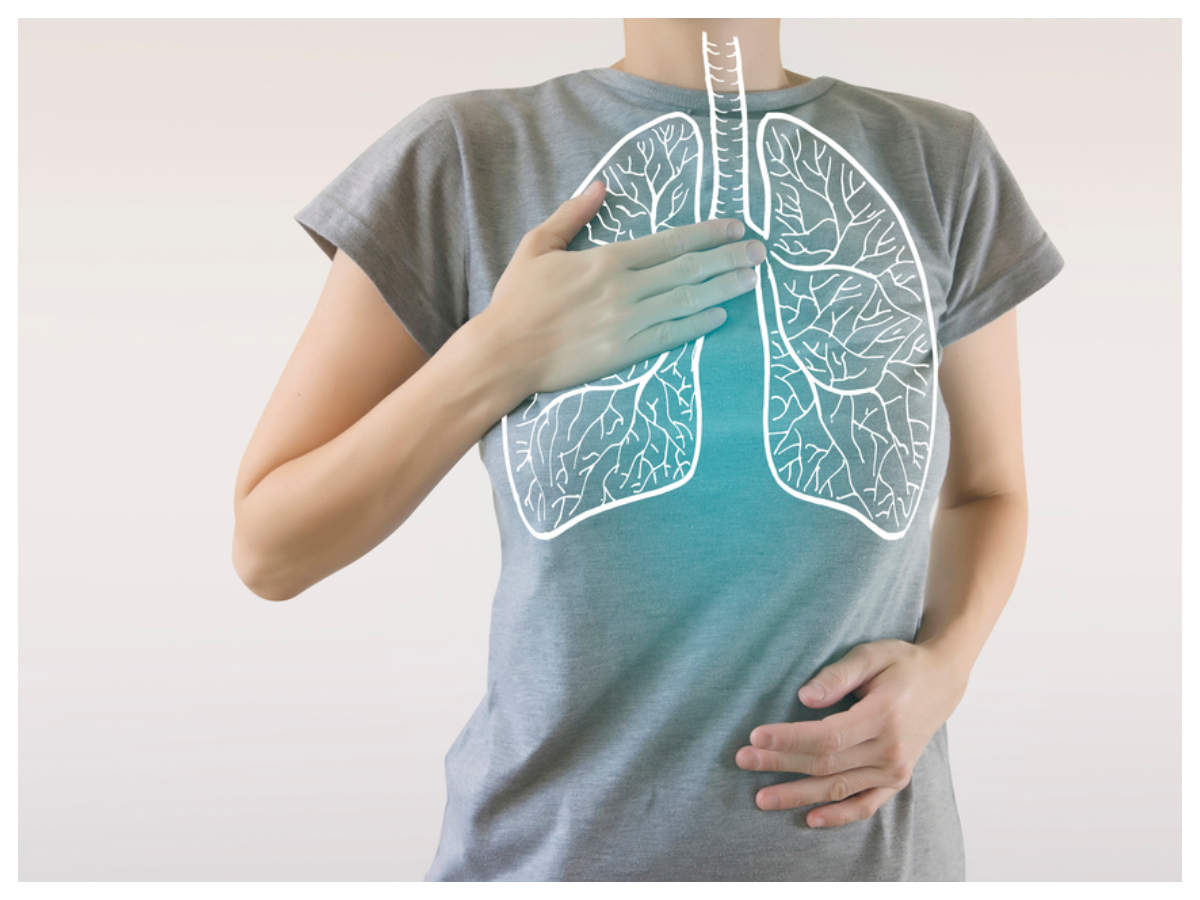
BENGALURU: Karnataka has recorded fewer coronavirus infections than Kerala, but the fatality rate is eight times higher, prompting calls that effective measures being followed in the neighbouring state should be quickly adopted here.
Only two of 387 patients in Kerala, which was the first state to report Covid-19 cases, have died. The fatality rate of 0.5% is among the lowest in the world. In Karnataka, 12 of 279 patients have died, a rate of 4.3%. Late referrals, i.e. patients not being identified and brought to hospitals promptly, and comorbidities (one or more medical conditions co-occurring with Covid-19) are among the reasons behind higher deaths in Karnataka. Another challenge is the clinical management of high-risk cases.

What’s making a huge difference in Kerala is a health surveillance drive covering the vulnerable population of senior citizens, people with comorbidities, and underweight and malnourished children, according to Dr Ratan Kelkar, director, National Health Mission (NHM), Kerala. Dr Kelkar headed the NHM in Karnataka a year ago before being transferred to Kerala.
“Around 50 lakh elders, aged above 60, are under the surveillance programme. Out of this, about 65% will have comorbidities like diabetes and hypertension. Kerala has about 3 lakh undernourished and underweight children. Surveillance teams are monitoring their health every day,” he told TOI. “For those with non-communicable diseases, like hypertension and diabetes, medicines sufficient for a month are supplied at their doorstep. All this is done in coordination with the health department, women and child welfare department and local self-governing bodies.”
Recovery rate is also encouraging. “There were 15-17 senior citizens who tested positive. There have been two deaths, but the majority of the patients have recovered with good clinical management. A 92-year-old man and his 86-year-old wife recovered and were discharged,” Dr Kelkar said. As a part of the strategy for effective implementation of the lockdown, the Kerala government made a short video of an elderly woman in her 80s asking everyone to stay home. The measures taken by Karnataka, which has a sizeable globe-travelling population, have also produced results, helping keep the number of infections in check. Some other big states have reported high figures. But deaths have become a concern in Karnataka in the past week, prompting closer review of the condition of patients.
Nineteen coronavirus patients were found to be suffering from severe acute respiratory infection, or SARI. Six of the 12 people who died were diagnosed with SARI. Comorbidities like diabetes, hypertension and heart disease were some of the exacerbating factors in the deaths.
The Covid-19 death audit panel is yet to meet and submit its report. Health commissioner Pankaj Kumar Pandey discussed an area of concern: “The capability of doctors and critical-care support staff is a challenging factor. We’ve started a tele-ICU facility through which experts can remotely monitor the progress of patients in ICUs,” he said. This team will observe all patients who are on ventilatos, have comorbidities and are aged 60 or above. Pregnant women will also be closely monitored.
Dr Prashanth NS, a public health researcher from the Institute of Public Health, Bengaluru, said the state must identify high-risk groups of malnourished children and protect vulnerable senior citizens.
“A syndromic surveillance should happen in Karnataka that can potentially detect a hotspot even before a person tests positive,” Dr Prashanth said.
According to education minister S Suresh Kumar, the government spokesperson for Covid-19 developments, district-level expert committees include pulmonologists, cardiologists and anaesthetists from private and public hospitals. They will provide guidance for the management of Covid-19 cases.
A senior government official said Karnataka, which until now relied on private medical care, had woken up to the need of strengthening the public health system.
Only two of 387 patients in Kerala, which was the first state to report Covid-19 cases, have died. The fatality rate of 0.5% is among the lowest in the world. In Karnataka, 12 of 279 patients have died, a rate of 4.3%. Late referrals, i.e. patients not being identified and brought to hospitals promptly, and comorbidities (one or more medical conditions co-occurring with Covid-19) are among the reasons behind higher deaths in Karnataka. Another challenge is the clinical management of high-risk cases.

What’s making a huge difference in Kerala is a health surveillance drive covering the vulnerable population of senior citizens, people with comorbidities, and underweight and malnourished children, according to Dr Ratan Kelkar, director, National Health Mission (NHM), Kerala. Dr Kelkar headed the NHM in Karnataka a year ago before being transferred to Kerala.
“Around 50 lakh elders, aged above 60, are under the surveillance programme. Out of this, about 65% will have comorbidities like diabetes and hypertension. Kerala has about 3 lakh undernourished and underweight children. Surveillance teams are monitoring their health every day,” he told TOI. “For those with non-communicable diseases, like hypertension and diabetes, medicines sufficient for a month are supplied at their doorstep. All this is done in coordination with the health department, women and child welfare department and local self-governing bodies.”
Recovery rate is also encouraging. “There were 15-17 senior citizens who tested positive. There have been two deaths, but the majority of the patients have recovered with good clinical management. A 92-year-old man and his 86-year-old wife recovered and were discharged,” Dr Kelkar said. As a part of the strategy for effective implementation of the lockdown, the Kerala government made a short video of an elderly woman in her 80s asking everyone to stay home. The measures taken by Karnataka, which has a sizeable globe-travelling population, have also produced results, helping keep the number of infections in check. Some other big states have reported high figures. But deaths have become a concern in Karnataka in the past week, prompting closer review of the condition of patients.
Nineteen coronavirus patients were found to be suffering from severe acute respiratory infection, or SARI. Six of the 12 people who died were diagnosed with SARI. Comorbidities like diabetes, hypertension and heart disease were some of the exacerbating factors in the deaths.
The Covid-19 death audit panel is yet to meet and submit its report. Health commissioner Pankaj Kumar Pandey discussed an area of concern: “The capability of doctors and critical-care support staff is a challenging factor. We’ve started a tele-ICU facility through which experts can remotely monitor the progress of patients in ICUs,” he said. This team will observe all patients who are on ventilatos, have comorbidities and are aged 60 or above. Pregnant women will also be closely monitored.
Dr Prashanth NS, a public health researcher from the Institute of Public Health, Bengaluru, said the state must identify high-risk groups of malnourished children and protect vulnerable senior citizens.
“A syndromic surveillance should happen in Karnataka that can potentially detect a hotspot even before a person tests positive,” Dr Prashanth said.
According to education minister S Suresh Kumar, the government spokesperson for Covid-19 developments, district-level expert committees include pulmonologists, cardiologists and anaesthetists from private and public hospitals. They will provide guidance for the management of Covid-19 cases.
A senior government official said Karnataka, which until now relied on private medical care, had woken up to the need of strengthening the public health system.

Coronavirus outbreak
Trending Topics
LATEST VIDEOS
City
 COVID-19 crisis: Social distancing being maintained at societies and Shastri Nagar vegetable market in Thane
COVID-19 crisis: Social distancing being maintained at societies and Shastri Nagar vegetable market in Thane  Chief minister B S Yediyurappa inaugurated Covid-19 testing mobile booth at his home office 'Krishna' in Bengaluru
Chief minister B S Yediyurappa inaugurated Covid-19 testing mobile booth at his home office 'Krishna' in Bengaluru  Watch: 'Yamraj' walks around streets in Bihar’s Munger to remind people about Covid-19 danger
Watch: 'Yamraj' walks around streets in Bihar’s Munger to remind people about Covid-19 danger  Moradabad stone-pelting: Injured doctor narrates horrific incident
Moradabad stone-pelting: Injured doctor narrates horrific incident
More from TOI
Navbharat Times
Featured Today in Travel
Get the app




